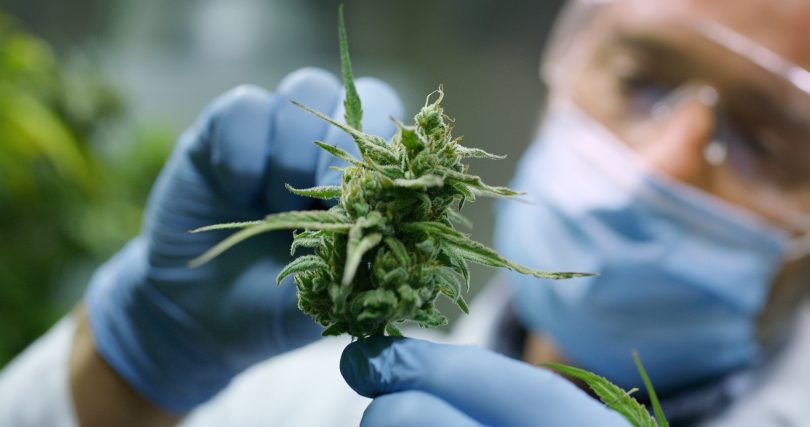Technically, we all want a good product, even when we’re purposefully buying cheaper. We hope, we expect (whether naively or not) that the governing bodies in place are doing their part to ensure a level of quality and safety. But who sets the standard? And what does that mean, especially in the world of legal cannabis?
Essentially, good manufacturing practice is: “… a system for ensuring that manufacturers produce goods consistently and in a controlled way. Companies and organizations must produce their goods according to quality standards. GMP contains basic preventive guidelines for factory and facility operations…”
When you buy a carton of milk at the store, or a can of soup, there’s an expectation that the product will be essentially identical to the same product bought before. I remember the big taste tests between Coke and Pepsi back in the 80s, the whole idea of which depended on every single bottle of each tasting exactly the same, having the exact same amount of component ingredients, in the exact same measurements. Every time.
This didn’t ensure quality, of course, but it did ensure uniformity, and in the world of mass product production, uniformity is important because it creates a measurable standard. Good manufacturing practices (GMPs) are the set of rules that govern the uniformity of the product, essentially, as set by whatever standard of safety that is regimented for a particular location, and they apply to the cannabis industry as much as any other.
Are you working in the Hemp or in the Medical cannabis industry? Subscribe today to the Medical Cannabis Weekly and get your first 90 days free!
Are the same GMPs always used
While a certain logic might tell us that a universal system of GMPs would be ideal, it’s not realistic. This planet is built of individual countries that function differently, and with their own standards. Think about what’s allowed in food. The US, for example, has extremely low standards, letting in chemicals and processes that other countries will not. In comparison, the EU has much more stringent overall standards for food ingredients.
This means the same brand name product DOES NOT, and often, CANNOT, be the same between countries. If a US company wants to export a bread item containing potassium bromate (a chemical used to strengthen dough) to France, that company is required to change its uniform recipe, to a different uniform recipe that matches the standards for importation to France, where potassium bromate is banned; or simply lose the market.
In this case, they’d have to eliminate potassium bromate, for something else, like ascorbic acid which is legal to use by EU and French standards. Nearly every food company in a place like the US, will have to have different formulations for their food products that match the standards of every individual country that the products are being exported to.
And it goes the same for companies that directly operate in different countries. McDonalds in America serves a very different product from McDonalds in the UK, or Israel, or India. Sometimes the products are entirely different to account for cultural differences, like not using milk and meat together in Israel to keep the restaurant kosher, or not using cow or pork in India as per Indian religious requirements.
In these cases, the products are reformulated to match the manufacturing and regulation laws of that location. We might think of every McDonald’s hamburger as being the same, but if you venture out of the US, you’ll encounter a very different hamburger, even if the new one is identical to all its counterparts in its particular location.
Importance of Stocking GMP Products in Your Shop
GMPs and cannabis
Legal cannabis products are no different from other products when it comes to a need for establishing both uniformity, and conformity to particular regulations, enter cannabis industry GMPs. Right now, with a lack of legal recreational markets beyond the US, Canada and Uruguay (with Mexico on its way), medicinal cannabis markets have become the focus, with dozens already open, and more on the way. Essentially, on every continent except Antarctica, cannabis is being grown by at least some of the component countries of the continent, and exported out to other countries. And they certainly don’t all share the same standards.
Differing GMPs for legal cannabis
Let’s look at some of the basic differences between locations when it comes to regulation concerning cannabis products. There are many production standards that are spoken about less, even though they’re important. Laws around how clean a place needs to be, or the measures a company takes for their employees when working with dangerous machinery, or even the amount of pesticides allowed on a product for consumption. Other standards are spoken about more often, like the max amount of THC allowed in a cannabis-derived product, or industrial hemp. Since this standard is so often spoken about, it makes a good example to show the differences in GMP regulation.
EUROPEAN UNION
As the EU is made up of many individual countries, there is both a standard for the EU, as well as whatever standard exists in each individual country. Sometimes, individual member states don’t have to follow EU regulation, but more often than not they do. As of right now, the standard in the EU for both the max amount of THC in cannabis derived products, as well as industrial hemp, is .2%. It should be noted that apart from this, THC in food products is not regulated, leaving member states to make their own laws, like Italy, that just set its own max amount of THC in food products to 2 mg/kg, which roughly translates to .0002%.
Of course, not every EU, or EU-related country goes quite by this standard. Take Switzerland for example, which allows 1% THC legally. Or the Netherlands, which though allowing legal smoking through a law of tolerance, still holds cannabis as illegal, requiring products made from it to have a max .05% THC, lower than the EU limit.
UNITED STATES
In the US, the Farm Bill makes the designation that industrial hemp can be grown with a max THC level of .3%. Cannabis derived products are not regulated in the US, so there is no further specification on a federal level for CBD products, or any other cannabis derived products, making them semi-legal through the loophole of using industrial hemp for production. However, when it comes to medicinal cannabis, every state that has legalized, has either no cap on THC, or a very, very high one, making the US legal states a great destination for medical marijuana products from nearly anywhere.
CANADA
As a legal country, Canada is much more lenient throughout, even though different provinces set their own standards. High THC products are allowed in Canada on both the medicinal and recreational front, which means Canada too is a great destination for cannabis products produced from almost anywhere.
TURKEY
A country like Turkey is still mostly illegal, but it does have limited medical use. However, its medical use is strictly for products like Sativex. As Turkey doesn’t produce any of its own cannabis, it doesn’t have regulation to guide the growth of cannabis or its production. A country like Turkey is very limited in what it will accept, making only certain and specific products available for importation.
Only A ‘Dozen’ Domestic Canadian LP Facilities Have Secured EU-GMP Compliance
Just how confusing is it?
First, consider the kinds of legalization. Is cannabis legal for medicinal use? Does that medicinal legalization extend to high THC products, or is the THC level capped? Then consider if the country has a recreational market, and if that recreational market has THC caps.
Then consider industrial hemp, and that sometimes its grown in countries where cannabis is legal, and sometimes it’s grown in countries where cannabis is not, and that the max THC level varies by country, meaning any product derived will have the level of the hemp.
Then consider that many countries like the US, Australia, and Canada are made up of different states or provinces that can have entirely different legal standards. Like having both legal and illegal states in the US, or Australia, where recreational cannabis is only legal in Canberra.
What does this mean?
One of the stipulations to gaining a cannabis license in many places like Poland and Macedonia, is to have a buyer for the finished product. This is often important because the country the cannabis is grown in, may have different regulatory standards than the country it’s being exported to, and the production of the products must fit in line with the GMP standards of the country of import.
So, if Germany requires imported medicinal cannabis to have .2% THC max, then growers in a place like Ecuador (only just starting its medicinal cannabis import/export market), which has a cap at 1%, will have to be careful to make sure products geared toward Germany, are not over .2% THC. As you can imagine, if a company wants to sell globally, it’ll have to be like McDonald’s, changing its formulation for every different country.
Conclusion: Global GMPs in the Cannabis Industry
The idea of changing formulations of a product so that it fits the GMP standards of another country, is not new. Whether it’s substituting ascorbic acid for potassium bromate in France, taking out dairy to keep McDonald’s kosher in Israel, or making sure that cannabis meant for a medicinal market in Portugal has no more than .2% THC, in all situations, products are being modified, and specifically planned, for the particular requirements of the GMPs in that destination location.
As the legal cannabis markets grow, perhaps there will be a greater level of established conformity globally, and if not, it can be expected that companies that want to do well in these new markets, will have to up their GMP game to be acceptable in as many places as possible.
Looking for EU GMP CBD Isolate? EU GMP CBD Distillate? EU GMP CBG OR EU GMP THC Isolate? or any other EU GMP Extract? Subscribe to the Medical Cannabis Weekly Newsletter, and let us assist you in sourcing the best products for your opertion.
Looking for hemp flowers or Delta-8 products? Subscribe to the CBD Flowers Weekly Newsletter.







